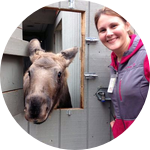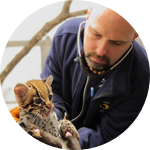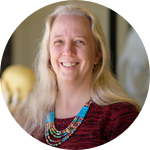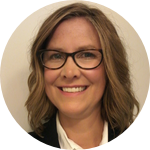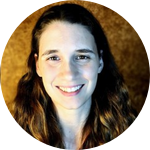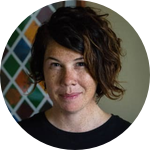About This Project
Zoo animals get cancer just like humans do, but little is known about causes and effective treatments. In response, we have curated the largest manually entered database in the world evaluating cancer in zoo species, but it needs to be more automated to continue to grow. Additionally, we are starting a biobank to store tumors from these animals, many of whom are endangered, to provide researchers with the materials they need to improve survival for all walks of life.
Ask the Scientists
Join The DiscussionWhat is the context of this research?
Comparative studies of genes and cancer may hold promise to understanding what makes species susceptible to cancer and why it develops in certain species. A major roadblock to progress in this field is the lack of both a centralized database and tissue bank of cancer samples from a variety of species. Individual laboratories have made significant discoveries based on small numbers of specimens, but a centralized biobank could substantially multiply their impact. Standardized record collection, tissue collection, storage and processing methodologies would lead to more research synergism and collaborations.
What is the significance of this project?
Cancer in wildlife housed in zoological institutions is poorly studied. Not much is known about risk factors, successful cancer therapies, or survival time. Gaining a better understanding of these cancers can improve medical care for these animals, many of whom are endangered species. Learning more about cancer in zoo species may also shed light into cancer occurring in humans, too. For example, a common cancer found in jaguars is ovarian cancer. Learning about inherited ovarian cancer in jaguars may teach us more about ovarian cancer in women.
What are the goals of the project?
Our goal is to find genetic and physiological similarities in the cancers found in zoo animals. We want to enhance our wild species database and create a centralized biobank of cancerous tissues from these animals. We still have 2000+ records of zoo animals with cancer to add to our database. We need funds to support automated data entry of these records and funds to buy supplies to start our biobank. We need to prep and store the precious tissues that we will obtain from deceased animals that had cancer, or animals that need surgery as treatment, so researchers can look further at the genetic causes of cancer development. It is now known that an elephant's immune system can rupture cancer cells more often than in humans. What we find in zoo animals may help us!
Budget
We have more than 2000+ records we still have to add to our database. Funding is needed for our IT staff to develop automated methods to increase the speed of our data entry into the database. We want to implement improved OCR (Optical Character Recognition) to convert PDF files of medical records into editable and searchable data. OCR will help automate extraction of the information we need from these records. Also, we want to develop a template for the extracted data to be directly imported into the database. Starting automation and staffing costs will minimally cost $1500.
We also need supplies to prep and store tumors in the biobank. Examples of these supplies include vials to hold the tissues, tools to prep them, solutions to preserve the tissue, and shipping supplies to get them to researchers. The mininum start-up costs, including theses supplies, will run $1500.
Endorsed by
 Project Timeline
Project Timeline
Database automation enhancement and biobank building will begin at the same time and involve the following steps: Implementing improved OCR (Optical Character Recognition) to read PDF's to help automate data extraction from medical records. Developing an import template of extracted data for entry into the database. Collecting necessary supplies and equipment. Recruiting tissue donors. Cataloging and storing tissues. Making tissues available to research recipients.
Feb 05, 2019
Project Launched
Mar 15, 2019
Order biobank supplies
Apr 01, 2019
Begin Automation enhancements of Database
Apr 01, 2019
Begin recruitment of tissue donors
Apr 15, 2019
Begin Storing tissues
Meet the Team
Affiliates
Affiliates
Affiliates
Affiliates
Affiliates
Team Bio
On a micro level, our daily team consists of four individuals, 3 veterinarians and 1 molecular biologist.
On a macro level, we are a team of many dedicated veterinarians, human physicians, pathologists, and researchers from zoos, aquariums, academic institutions, and cancer institutes to name a few. Check out many of our collaborators: Our ESCRA affiliates
We are dedicated to fighting cancer in non-domestic species.
Tara Harrison
From my first position as a veterinarian at a zoological institution, I have been dedicated to advancing the care of captive wild animals. One of my first patients was a male lion with lymphoma, which prompted me to discover a novel method of treating his cancer. Through this process, I discovered that very little was known about cancers in wild animals and how to treat them. This absence of knowledge was disturbing, particularly with all of the knowledge that existed in domestic canine and feline medicine. Looking at dog and cat medicine only goes so far in captive zoological species. I was then driven to understand more about incidence of cancer in zoological species and therapies needed to combat cancer in them. I joined a collaboration to co-develop the Exotic Species Cancer Research Alliance (ESCRA) database with Ashley Zehnder. After 12 years in zoo medicine, I decided to become an assistant professor at North Carolina State University College of Veterinary Medicine to further my research into cancer in zoo animals. I have also joined with the Arizona Cancer Evolution Center to help understand cancer as part of a greater group focusing on the research of zoo animals with cancer. I am regularly treating and consulting on zoo and exotic animal pets with cancer. It is my goal to make a difference in their lives.
Leigh Duke
I am a research-trained veterinarian with experience working in a broad array of fields, including basic science research and museum collections. It was working at a science museum providing vet care for the many reptiles, fish, small mammals, and other local fauna that sparked my interest in exotic species and wildlife. Cancer is present in all species and deserves attention even if not always in cute and furry creatures. I am committed to helping ensure non-domestic species get the care they deserve!
Ashley Zehnder
I graduated from the University of Florida College of Veterinary Medicine in 2005, completed a small animal medicine and surgery internship at the Animal Medical Center in New York City in 2006 and a 3-year residency in Companion Avian and Pet Exotic Medicine at the University of California-Davis, becoming boarded in Avian Medicine in 2009. I completed my Cancer Biology PhD in the Khavari Lab at Stanford in 2016 working on novel therapeutic strategies to target altered signaling pathways in epithelial cancers. Since beginning my research training at Stanford, I have pursued interests in cancer biology as well as comparative medicine by maintaining active research interests in both fields. I spearheaded the Zoobiquity Research Symposium held at Stanford in April 2014 and Stanford One Health symposium in 2016, which brought together veterinarians and human medical researchers to discuss research efforts in infectious diseases, cancer as well as novel animal models of disease. I founded the Species Cancer Research Alliance to bring together medical professionals to pursue research interests relating to cancer in non-domestic species to shed light on the biology of tumors in these potentially valuable animal models. Currently, I am founder and CEO of Faunabio. Our focus is on developing a cross-mammal drug discovery platform based on the genomics of hibernation in mammals to aid human health.
Amy Boddy
I received my Ph.D. in Molecular Biology and Genetics from Wayne State University - School of Medicine in Detroit, Michigan. Currently, I'm an Assistant Professor in the Department of Anthropology at the University of California, Santa Barbara. My research focuses broadly on evolutionary applications to human health and disease. My work is motivated by fundamental questions in life history theory. I use a combination of genomics, computational biology and evolutionary theory to help understand trade-offs between survival and reproduction across different levels of biological organization, from molecules to organisms and everything in between.
Chris Eichman
As a solution architect and IT director, I provide the required design to ensure the confidentiality, integrity, and availability of all technology implemented in support of a research project. I provide the required project leadership necessary for proper development, implementation, and execution of all IT deliverables. I offer support to many academic research groups to help make their data collection and handling more seamless.
Project Backers
- 12Backers
- 20%Funded
- $575Total Donations
- $47.92Average Donation

